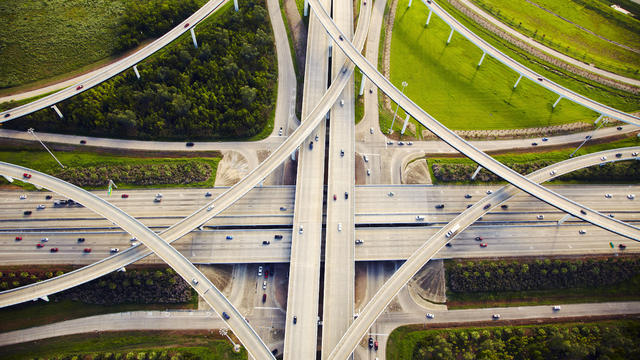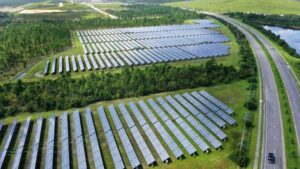What would the Senate’s bipartisan infrastructure bill do?

What would the Senate’s bipartisan infrastructure bill do?
A bipartisan Senate bill to spend $1 trillion on rebuilding the nation’s roads and bridges, expanding internet access and other projects to upgrade the nation’s infrastructure would add millions of jobs over the coming decade, proponents of the measure say.
“The investments in this bill will better position the United States to compete globally, strengthen our supply chains, and create millions of good-paying jobs — all while making our economy more resilient and just,” U.S. Secretary of Commerce Gina Raimondo said in a statement.
Here’s a breakdown of what the measure would do:
Roads and bridges
The bill would provide $110 billion to repair the nation’s aging highways, bridges and roads. According to the White House, 173,000 total miles of America’s highways and major roads and 45,000 bridges are in poor condition. And the almost $40 billion for bridges is the single largest dedicated bridge investment since the construction of the interstate highway system, according to President Joe Biden’s administration.
Public transit
The $39 billion for public transit in the legislation would expand transportation systems, improve accessibility for people with disabilities and provide dollars to state and local governments to buy zero-emission and low-emission buses. The Department of Transportation estimates that the current repair backlog is more than 24,000 buses, 5,000 rail cars, 200 stations and thousands of miles of track and power systems.
Passenger and freight rail
To reduce Amtrak’s maintenance backlog, which has worsened since Superstorm Sandy nine years ago, the bill would provide $66 billion to improve the rail service’s 457-mile-long Northeast Corridor as well as other routes. It’s less than the $80 billion Mr. Biden — who famously rode Amtrak from Delaware to D.C. during his time in the Senate — originally asked for, but it would be the largest federal investment in passenger rail service since Amtrak was founded 50 years ago.
Electric vehicles
The bill would spend $7.5 billion for electric vehicle charging stations, which the administration says are critical to accelerating the use of electric vehicles to curb climate change. It would also provide $5 billion for the purchase of electric school buses and hybrids, reducing reliance on school buses that run on diesel fuel.
Internet access
The legislation’s $65 billion for broadband access would aim to improve internet services for rural areas, low-income families and tribal communities. Most of the money would be made available through grants to states.
Electric grid
To protect against the widespread power outages that have become more frequent in recent years, the bill would spend $65 billion to improve the reliability and resiliency of the nation’s power grid. It would also boost carbon capture technologies and more environmentally-friendly electricity sources like clean hydrogen.
Airports
The bill would spend $25 billion to improve runways, gates and taxiways at airports and to improve terminals. It would also improve infrastructure at air traffic control facilities.
Water and wastewater
To improve the safety of the nation’s drinking water, the legislation would spend $55 billion on water and wastewater infrastructure. The bill would include $15 billion to replace lead pipes and $10 billion to address water contamination from polyfluoroalkyl substances, or PFAS — chemicals that were used in the production of Teflon and have also been used in firefighting foam, water-repellent clothing and many other items.



